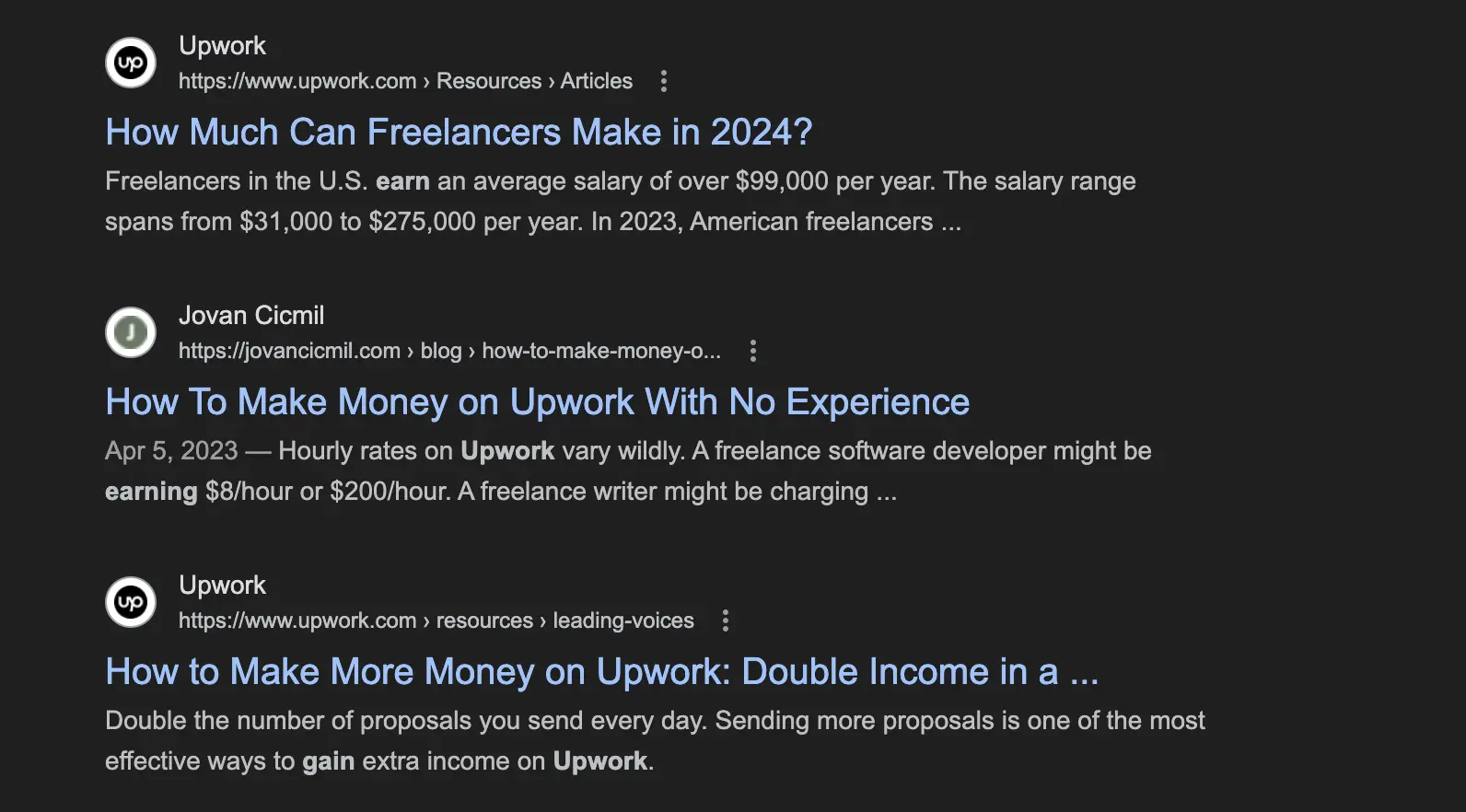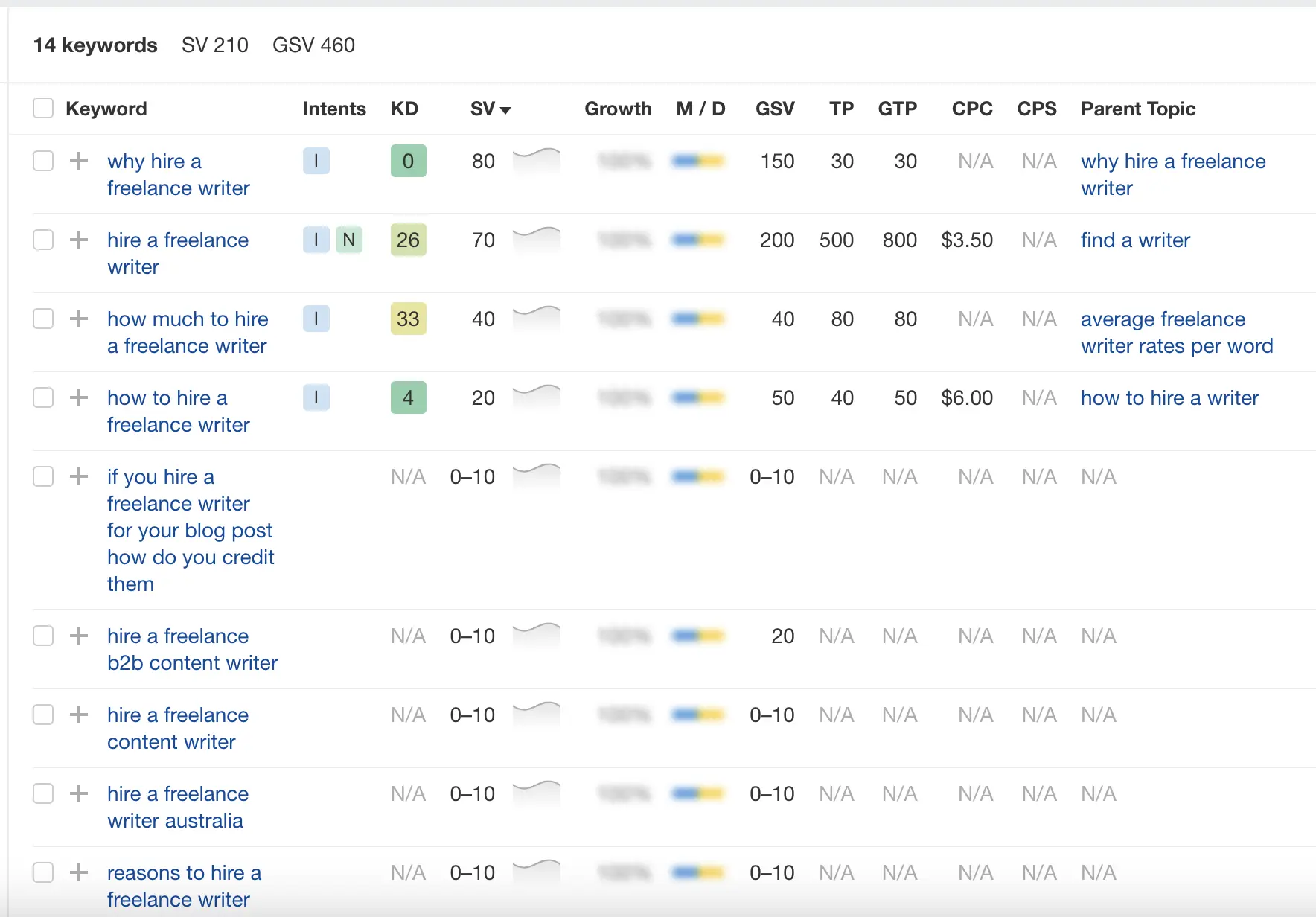
The most common pain point for freelancers is finding clients. Most of us are confident in our skills and our work ethic and our dedication. We just can’t wait to get out there and shine. And then…crickets. Not a client in sight.
In freelancing, the first step is often the hardest.
I’ve written a lot about finding freelance clients, but that’s not the Holy Grail. The Holy Grail is having clients come to you. This usually happens in three ways:
 90% of My Freelance Work Comes From Recurring Clients and ReferralsReferrals from previous clients.
90% of My Freelance Work Comes From Recurring Clients and ReferralsReferrals from previous clients. How To Effectively Use Twitter as a FreelancerSocial media content creation.
How To Effectively Use Twitter as a FreelancerSocial media content creation.- SEO.
This article is about the last item on that list.
How SEO can help your freelance business
Imagine waking up tomorrow morning to find an offer from a client sitting in your inbox.
You don’t have to log into Upwork or send cold emails or network on LinkedIn. Nothing. It’s just there. Sweet, isn’t it?
That’s what SEO can do for you.
But it’s not simple, and it’s not fast. You have to create quality content consistently for at least several months before you can hope to get offers like that. It also wouldn’t hurt to promote your content elsewhere, like LinkedIn, Reddit, X, or Quora. It would also help if you had a solid grasp of fundamental SEO principles.
It will feel like having a job on top of a job until you get the hang of it.
It’s 100% worth it.
Do you need to be an SEO expert?
Like with most things, 80% of SEO is common sense and fundamental knowledge. SEO experts spend inordinate amounts of time on keyword research, link-building, editing old articles, and many other things.
And all this has value. A good SEO expert can get you from result #4 to #1 on Google, which can be very valuable if the keyword is good.
But, if you’re a freelancer, you probably don’t have the budget to hire an SEO agency. In that case, you can achieve a lot of success simply by writing useful content and promoting it as best you can.

This screenshot is from the first page of Google. I’m competing against Upwork for Upwork-related search terms. I can do that because people share my articles, and they share them because they’re good. It’s not as complicated as it’s made out to be.
How do I do SEO for this blog?
I’ve used SEO to promote this blog for about two years. Here are some principles for freelancers who would like to do SEO:
- Pay for a keyword research tool. Don’t be cheap. You can’t make informed decisions without data. I use the Ahrefs $30/month plan and it’s more than enough for my purposes.
- Target low-hanging fruit first. Use your keyword research tool to find relevant keywords with a low difficulty rating. Usually, these are long-tail keywords. Think “how to make money as a beginner freelancer” rather than “how to freelance”.
- Don’t be afraid to shoot for the stars every once in a while. Sometimes you get good results for long keywords and you feel like tackling a bigger (but related) keyword. If you feel like it, go for it. Make the article extra long, extra informative, and link to it extra hard. You might just get a pleasant surprise.
- Be trustworthy everywhere on the internet. Quality backlinks are important. People being willing to share your work on social media is important. Accomplish this by projecting trustworthiness everywhere you show your face. People should feel confident that, when they share your writing, it’s going to be truthful and helpful. This can take a lot of time.
- If you have to choose between keywords and usefulness, always choose usefulness. Don’t forget that you’re writing principally for humans. Do humans want to read three introductory paragraphs that serve no purpose other than to stuff keywords? I know I don’t. If readers abandon your blog post because you made it too verbose for SEO purposes, it will backfire.
- Have fun with it. We’re not robots. Sometimes you just have to let your creative juices flow. I have an article on “community as a service” which accidentally ended up ranked #1 on Google for that search for a while. Is it directly related to freelancing? Not really, but it still got me a few sales, a few newsletter subscribers, and a lot of satisfaction.
How to choose keywords
It’s important to note that I don’t write to be discovered by clients. I write for other freelancers. I’m not going into specific keywords here because we (probably) don’t share the same goal.
If you want to attract clients, you have to write with that in mind. Understand what clients in your industry are searching for and work your way towards it.
For example, if you’re a freelance writer in the financial industry, your ideal clients might be searching for things like “hire a freelance writer”. It’s not realistic to rank high for that phrase any time soon, but you just might rank for some of these related ones.

Isn’t SEO dying because of AI?
A common argument heard these days is that SEO is dead. Like many other things, it is about to be replaced by AI. Any day now. Why Google things when you can just ask ChatGPT? Why do search engine optimization when you can get ahead of the curve and do AI optimization?
Let me explain the flaw with that reasoning.
AI Optimization is not a thing because the inner workings of AI are orders of magnitude too opaque. On Google, the rankings are clear and you can deduce the important factors in the algorithm with relative ease. You do X and you’re likely to move from spot 4 to spot 3 for a given keyword.
With AI, it’s pure guesswork. Why did ChatGPT select this website as an authority on a topic and not this other website? When you phrase the question slightly differently, why does it select a third source that disagrees with the first two completely?
Who the hell knows?
You can’t infer any useful rules from an LLM’s responses. Hence, if someone tries to sell you “AI optimization” for your website, they’re a fraud and a liar.
So, your best bet is to do good old-fashioned SEO and hope for the best. AI models are likely to respect what search engines respect.
Don’t forget about links
SEO isn’t just about what you create. It’s also about how others on the internet perceive it. Is it shareable? Is it insightful enough that they will link to it from their own blog posts? Is it technical enough that they will link to it as a citation?
The more good websites in the right niche link to your content, the better it will rank. Note the italics. They’re important. Don’t pay money to people who offer to create 100 backlinks to your site out of the blue. Generic backlink directories do little for your website’s ranking, at best. At worst, Google will penalize you for cheating.
Quality above all else
Whenever you’re in doubt, focus on the most important thing - educating, entertaining, and converting the reader. The human reader, not Google’s bots.
It’s easy to lose sight of the human reader once you start obsessing over keywords. Don’t. You ultimately write for humans. Even if you please the bots and your website ranks high and people come - those people still have to enjoy what they read and they have to be enticed to become customers or referrers.
In simple terms: help your future clients find you, then help them become clients.
Don't miss the next blog post!
I publish a new blog post every Wednesday. Join the newsletter to get:
- One valuable email a week.
- Zero spam.
- Exclusive content not found in the blog.
- Reply directly to me with questions or feedback.
Use the form at the bottom of this pageon the right to join the newsletter.


